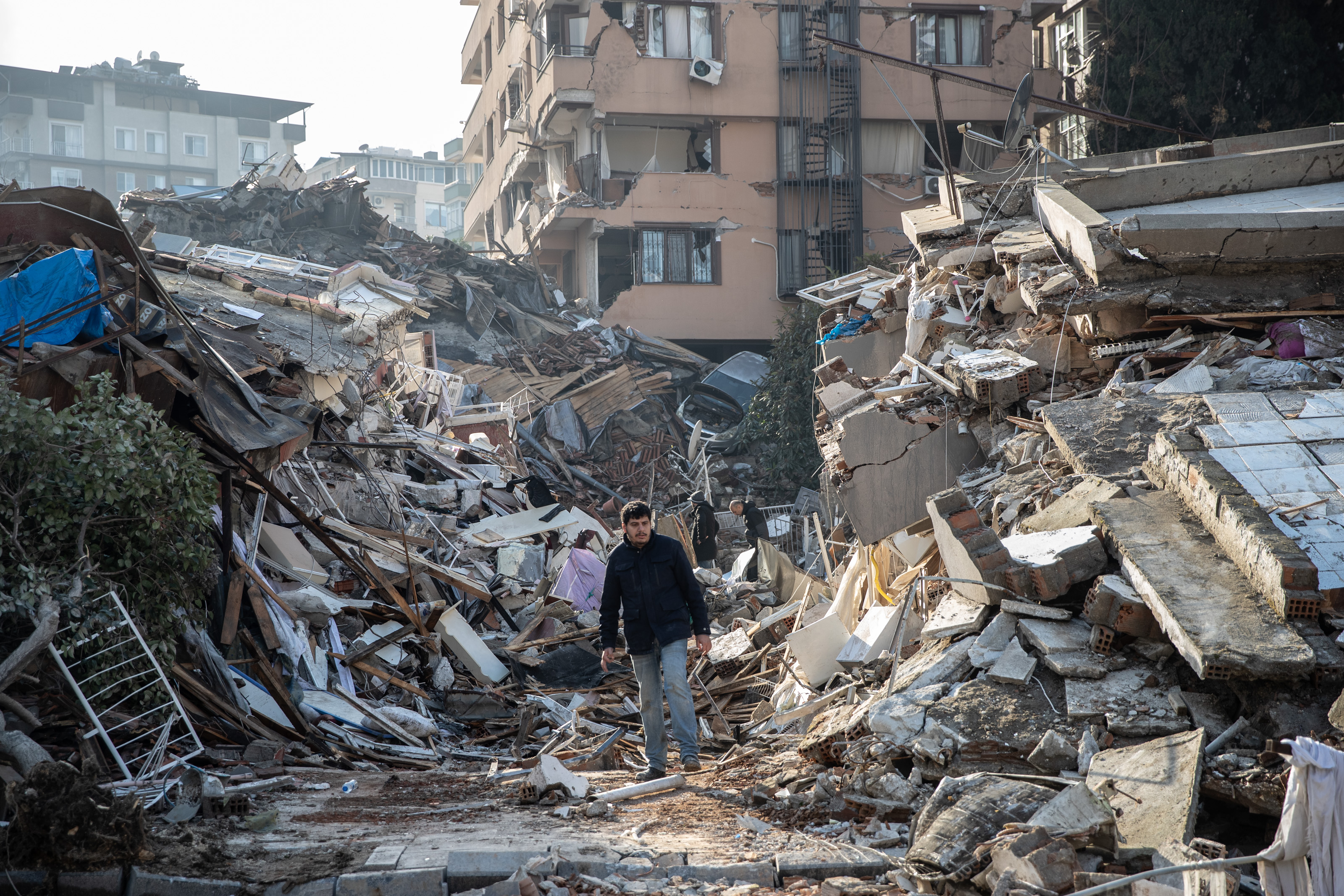WHO says more than 20,000 may die from Turkish earthquake as freezing temperatures hinder rescue efforts


A free daily email with the biggest news stories of the day – and the best features from TheWeek.com
You are now subscribed
Your newsletter sign-up was successful
The World Health Organization warned that more than 20,000 people may die following a devastating earthquake in Turkey and Syria, as freezing temperatures and winter weather continue to hinder rescue efforts.
Catherine Smallwood, the WHO's European senior emergency officer, told AFP on Monday night the death toll could see an "order of eightfold increases on the initial numbers," per The Guardian. This statement was reportedly made when the death toll was 2,600, meaning the total deaths from the disaster would be around 20,800 if this estimation holds true.
Smallwood noted that the same thing is almost always seen during earthquakes, that being "the initial reports of the numbers of people who have died or who have been injured will increase quite significantly in the week that follows."
The Week
Escape your echo chamber. Get the facts behind the news, plus analysis from multiple perspectives.

Sign up for The Week's Free Newsletters
From our morning news briefing to a weekly Good News Newsletter, get the best of The Week delivered directly to your inbox.
From our morning news briefing to a weekly Good News Newsletter, get the best of The Week delivered directly to your inbox.
The Associated Press reported that more than 5,000 have already died, with all evidence pointing to that number continuing to skyrocket. This is especially true as the region grapples with freezing temperatures that are putting a damper on rescuers and presenting a significant risk to anyone trapped in the rubble.
"Everywhere there is snow or rain, and it's very cold…the weather conditions and the climate is making it very difficult for the rescue workers and civilians," Turkish correspondent Sinem Koseoglu reported for Al Jazeera, adding that the weather seemed to be the "biggest challenge for everyone."
The initial 7.8-magnitude earthquake rocked south-central Turkey near the Syrian border, and could reportedly be felt in Israel, Egypt, Lebanon, and Cyprus. There have been hundreds of aftershocks reported, at least one of them registering as a 7.5-magnitude.
Hundreds of buildings have been destroyed, and some "as large as 12 stories high are now flattened," BBC News reported, adding that "roads have been destroyed and there are huge mountains of rubble as far as the eye can see."
A free daily email with the biggest news stories of the day – and the best features from TheWeek.com
Justin Klawans has worked as a staff writer at The Week since 2022. He began his career covering local news before joining Newsweek as a breaking news reporter, where he wrote about politics, national and global affairs, business, crime, sports, film, television and other news. Justin has also freelanced for outlets including Collider and United Press International.
-
 Quiz of The Week: 14 – 20 February
Quiz of The Week: 14 – 20 FebruaryQuiz Have you been paying attention to The Week’s news?
-
 The Week Unwrapped: Do the Freemasons have too much sway in the police force?
The Week Unwrapped: Do the Freemasons have too much sway in the police force?Podcast Plus, what does the growing popularity of prediction markets mean for the future? And why are UK film and TV workers struggling?
-
 Properties of the week: pretty thatched cottages
Properties of the week: pretty thatched cottagesThe Week Recommends Featuring homes in West Sussex, Dorset and Suffolk
-
 Nobody seems surprised Wagner's Prigozhin died under suspicious circumstances
Nobody seems surprised Wagner's Prigozhin died under suspicious circumstancesSpeed Read
-
 Western mountain climbers allegedly left Pakistani porter to die on K2
Western mountain climbers allegedly left Pakistani porter to die on K2Speed Read
-
 'Circular saw blades' divide controversial Rio Grande buoys installed by Texas governor
'Circular saw blades' divide controversial Rio Grande buoys installed by Texas governorSpeed Read
-
 Los Angeles city workers stage 1-day walkout over labor conditions
Los Angeles city workers stage 1-day walkout over labor conditionsSpeed Read
-
 Mega Millions jackpot climbs to an estimated $1.55 billion
Mega Millions jackpot climbs to an estimated $1.55 billionSpeed Read
-
 Bangladesh dealing with worst dengue fever outbreak on record
Bangladesh dealing with worst dengue fever outbreak on recordSpeed Read
-
 Glacial outburst flooding in Juneau destroys homes
Glacial outburst flooding in Juneau destroys homesSpeed Read
-
 Scotland seeking 'monster hunters' to search for fabled Loch Ness creature
Scotland seeking 'monster hunters' to search for fabled Loch Ness creatureSpeed Read
